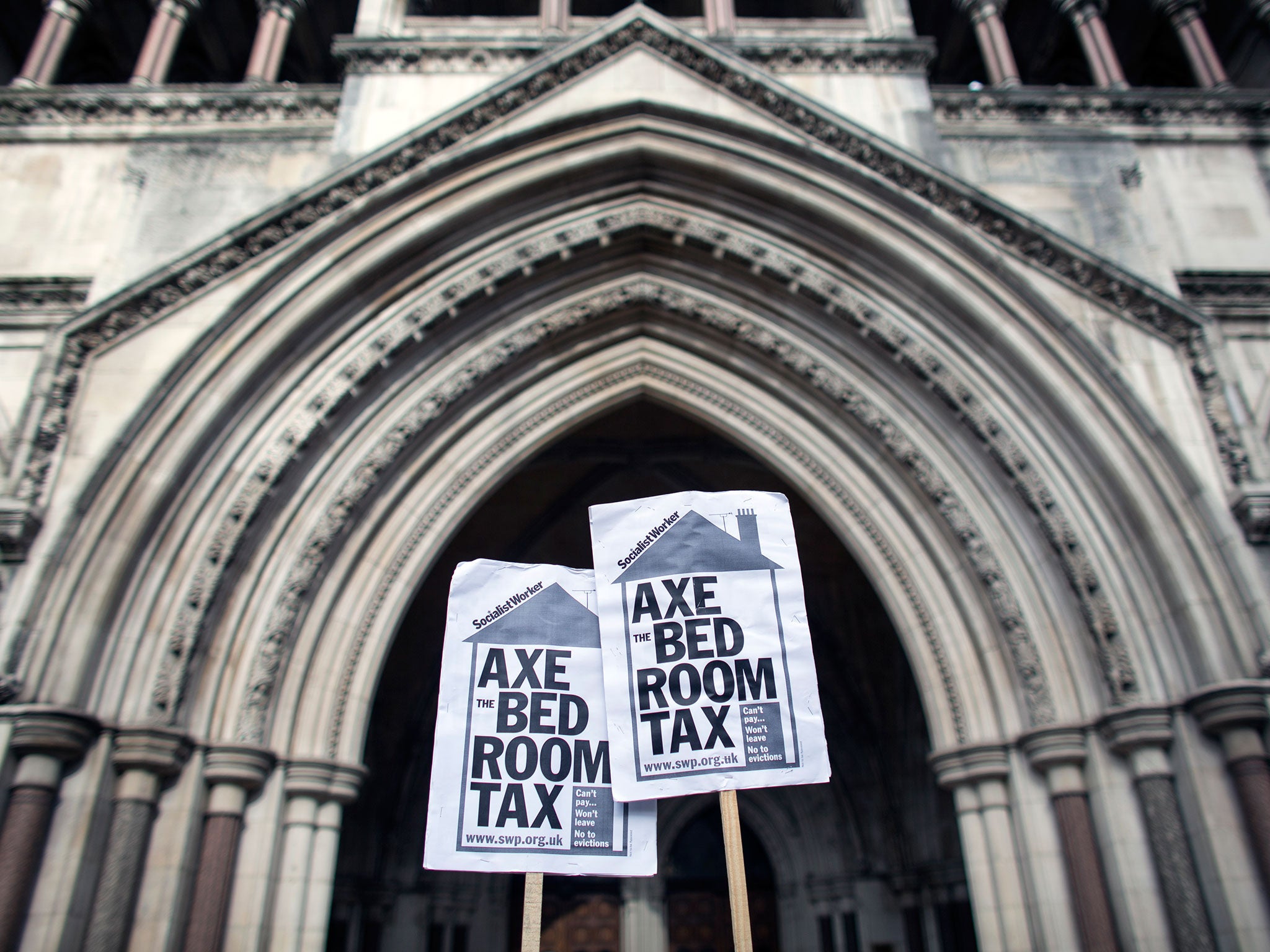Your support helps us to tell the story
From reproductive rights to climate change to Big Tech, The Independent is on the ground when the story is developing. Whether it's investigating the financials of Elon Musk's pro-Trump PAC or producing our latest documentary, 'The A Word', which shines a light on the American women fighting for reproductive rights, we know how important it is to parse out the facts from the messaging.
At such a critical moment in US history, we need reporters on the ground. Your donation allows us to keep sending journalists to speak to both sides of the story.
The Independent is trusted by Americans across the entire political spectrum. And unlike many other quality news outlets, we choose not to lock Americans out of our reporting and analysis with paywalls. We believe quality journalism should be available to everyone, paid for by those who can afford it.
Your support makes all the difference.The Government has been accused writing a “blank cheque” to lawyers to mount legal defences of its so-called “bedroom tax” policy.
Yesterday the Court of Appeal ruled the controversial under-occupancy charge was unlawful and discriminatory because of its effect on a severely disabled teenager and a rape victim.
The Government instantly said it would appeal the decision at the Supreme Court, but Labour said ministers were wasting money on legal fees to defend a policy “that has failed in every regard”.
“Can the minister confirm there are 280 victims of domestic violence that have had panic rooms installed house under the Sanctuary scheme affected by the policy – and can he confirm that exempting those people from the bedroom tax would cost the Government a mere £200,000,” Owen Smith, shadow DWP secretary asked in the House of Commons.
“By comparison can he tell us how many hundreds of thousands of pounds he’s spent on legal fees defending this policy and how much more he’s prepared to spend? Is this a blank cheque to defend this to the end?”
DWP minister Justin Tomlinson, who was fielding questions for the Government, did not respond directly to the question.
“We fundamentally disagree with yesterday’s court of appeal ruling,” he said.
Asked later by another MP why the Government was “spending taxpayers’ money on an appeal”, Mr Tomlinson replied: “Because we want to make sure those who are vulnerable get the right support.”
One of the two successful appeals was brought by a woman identified as ‘A’ who had been a victim of domestic violence. Her home has been specially adapted by police to include a panic room.
Her lawyers claimed the policy discriminated against her because she would have to leave a room that had been adapted for her safety.
The second successful appeal was brought by Paul and Susan Rutherford on behalf of their severely disabled grandson Warren.
Warren suffers from a rare genetic disorder and requires 24 hour care because he cannot walk, talk or feed himself.
The couple was hit by the bedroom tax because they have a room that is used for overnight carers and storing specialist medical equipment.
The court found the policy’s impact on disabled children was contrary to the European Convention on Human Rights.
A DWP spokesperson said the people found to have been discriminated against were in receipt of discretionary housing payment – payment provided by councils to cancel out the effects of the “bedroom tax”.
“We are pleased that the court found – once again – that we have complied with the Public Sector Equality Duty,” the spokesperson said in a statement.
“We fundamentally disagree with the court’s ruling on the ECHR, which directly contradicts the High Court. We have already been granted permission to appeal to the Supreme Court.
“We know there will be people who need extra support. That is why we are giving local authorities over £870m in extra funding over the next five years to help ensure people in difficult situations like these don’t lose out.”

Join our commenting forum
Join thought-provoking conversations, follow other Independent readers and see their replies
Comments